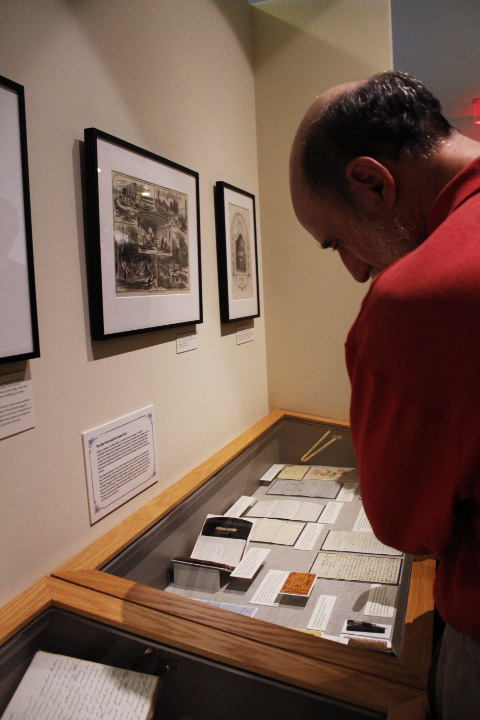
News
Summers Will Not Finish Semester of Teaching as Harvard Investigates Epstein Ties

News
Harvard College Students Report Favoring Divestment from Israel in HUA Survey

News
‘He Should Resign’: Harvard Undergrads Take Hard Line Against Summers Over Epstein Scandal

News
Harvard To Launch New Investigation Into Epstein’s Ties to Summers, Other University Affiliates

News
Harvard Students To Vote on Divestment From Israel in Inaugural HUA Election Survey
Civil War Exhibit Opens at Schlesinger Library

The Radcliffe Institute for Advanced Study opened the doors of Schlesinger Library Wednesday to showcase writings from individuals who lived during the Civil War.
Dean of the Radcliffe Institute Lizabeth Cohen, University President Drew G. Faust, and Kathy A. Jacob ’72, the curator of manuscripts at the Schlesinger Library, addressed more than 100 attendees at the grand opening of the exhibit, “What They Wrote, What They Saved."
“The Schlesinger Library’s rich collections of family and household papers, letters, and diaries offer us moving glimpses into the profoundly personal impact of the war,” Cohen said during her introduction. “We read tender and reassuring letters from fathers, brothers, and sons at the battlefield. We hear the weary—and worried—voices of mothers, daughters, and sisters who were left to soldier on at home without them.”
The library presented stories with this human element in mind. Each story presented a particular voice, but was part of a larger story—the human story of the Civil War. During her portion of the presentation, Faust highlighted how the act of writing helped shape that story.
“Putting things into words makes people see their feelings in more explicit ways and articulate those feelings in more explicit ways,” Faust said. “So in some ways it changes the nature of relationships as words become the only vehicle for intimacies that might be expressed in other forms if people were in the same place and together.”
The displays showcased a variety of communications, including confessions of courtly love, husbands making sure that their wives kept up with the housework, and even drawings from soldiers. Other communications included instances of soldiers venting about their emotional struggles during the war. There were also photographs, carefully preserved, that gave faces to the stories being told.
The exhibition was displayed in one room, with seven transparent cases protecting the first-hand accounts of the war and labels beside each giving descriptions of each piece.
“They’re hugely constrained by the space. And with only seven cases, to have to whittle it down...and sort of have to figure out what themes they could possibly cover in such limited space, I think they did a really effective job at that,” said Laura Microulis, a historian who is writing her dissertation at Bard College and attended Wednesday's opening.
The exhibition reflects the changing perspective on the Civil War, Faust said during her remarks. Historians recognize that the war was not just about political justifications, economic consequences, or notable generals.
“Warfare is of course about the power of guns, but I think we see in this exhibit how it was also about the power of words. And those words are ours, still, to understand, to read, to learn from,” Faust said.
Want to keep up with breaking news? Subscribe to our email newsletter.
